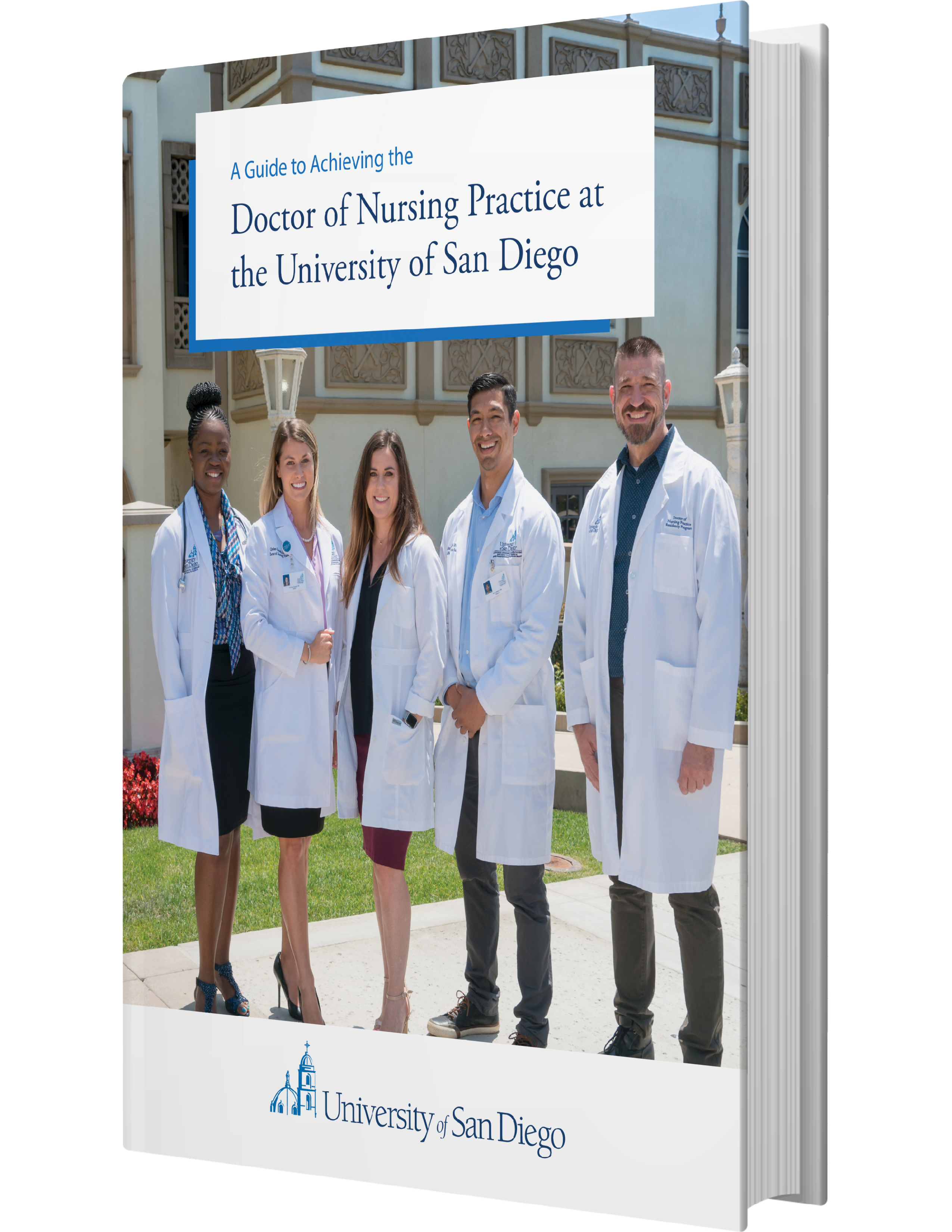Why Get a Doctor of Nursing Practice?
If you aspire to become a change-maker in nursing, well-prepared to lead the charge of improving health care in our country, our Doctor of Nursing Practice (DNP) Program may be the right choice for you. Although we offer several paths of study in pursuit of this terminal degree, some elements remain consistent: a mastery of clinical practice, a drive to lead and a commitment to human connection.
Our DNP program prepares nurses at the highest level of proficiency as they learn to translate science into clinical practice. Students develop the skills to lead collaboratively, integrate research into care, and design better health care delivery systems. Some of our DNP students focus their studies on delivering complex care over the lifespan of one population. Others scale up their impact to shape entire systems, organizations, and policies through executive or administrative roles.
Whatever your intended focus, you will earn your DNP in a unique environment that blends academic strength with nurturing support. Here, what truly fosters our students’ success is their personal connection to our expert nurse faculty, as together, we push science into practice.
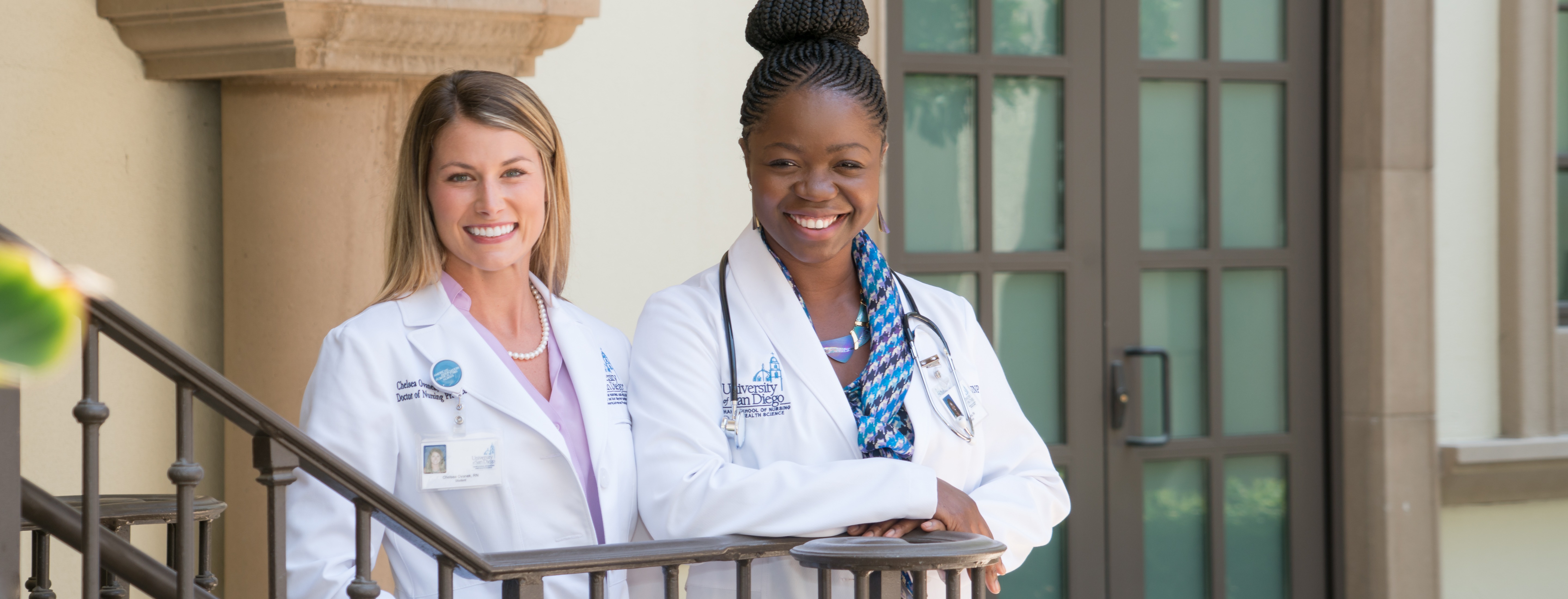
About the Program
Designed for registered nurses with a bachelor’s or master's degree in nursing, this program offers preparation as nurse practitioners, nursing informaticists and health systems leaders with clinical practice leadership expertise at the doctoral level.
Students may choose from seven tracks: Family Nurse Practitioner; Family Nurse Practitioner in Emergency Care; Psychiatric-Mental Health Nurse Practitioner; Dual Adult-Gerontology/Family Nurse Practitioner; Dual Pediatric/Family Nurse Practitioner; Health Systems Leadership and Nursing Informatics and Data Science. The BSN to DNP program ranges from 78 to 83 units and may be completed on a full-time or part-time basis.
Whichever track is selected, students receive the unwavering support of our faculty, plus a sunny, serene setting that allows for total immersion into their studies.
BSN to DNP
Program Outcomes
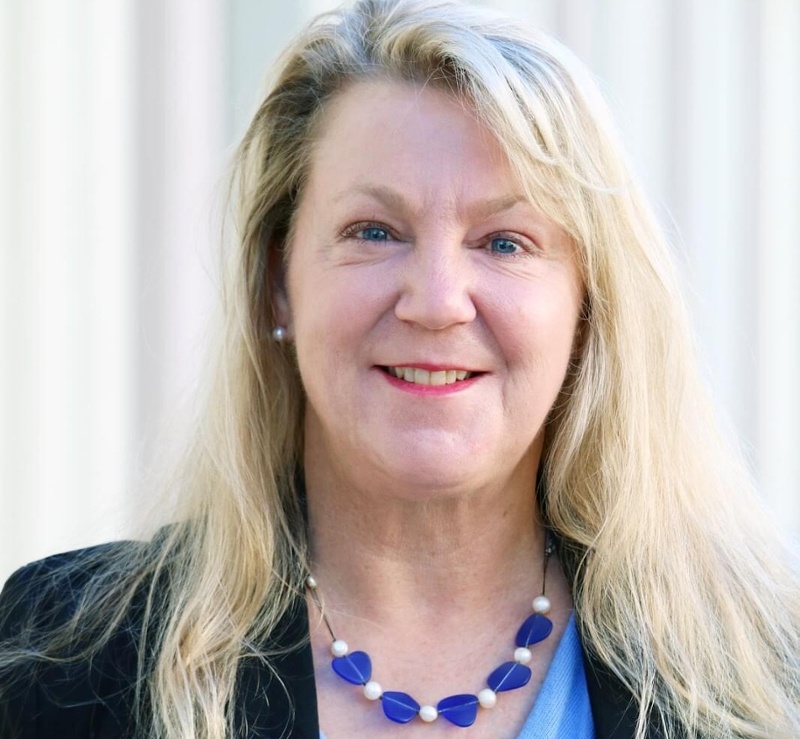
Serena's Story – Why I Earned My Doctor of Nursing Practice (DNP)
When I decided to go back to school to earn my Family Nurse Practitioner (FNP) certification, I researched doctoral programs. I might as well “move up” with the higher degree. The doctorate was becoming the standard, and I wanted to be sure I would continue to be as current and qualified in my profession as possible...
BSN to DNP
Frequently Asked Questions (FAQs)
When is the application deadline? How often are students admitted?
The application deadline for the BSN to DNP Program is March 1. Applications are screened once a year for Fall admission.
What is the GPA requirement?
The minimum GPA requirement is 3.00.
How do I know if my degree from another country is equivalent to a US degree?
If you earned a degree from an institution outside the United States, you are required to submit a course-by-course evaluation from World Education Services, Inc (WES).
Is the California RN license required at the time of application?
Applicants must submit proof of an active, unencumbered California RN license. International applicants must have an unencumbered, active California state registered nurse (RN) license at the time of application; domestic applicants who are licensed in another state must have an unencumbered, active California state registered nurse (RN) license upon enrollment.
Is there a work experience requirement?
A minimum of one year of acute-care RN work experience is required for the nurse practitioner tracks. Experience in emergency nursing, disaster/crisis management, military service or related work experience is required for applicants to Family Nurse Practitioner program in Emergency Care.
One year of clinical experience as a registered nurse is preferred for the nursing informatics and health systems leadership tracks.
How many units is the program?
The program ranges from 70-83 units depending upon the track selected.
Can I attend the program on a part-time basis?
You can enroll either full-time or part-time. Students who attend full-time complete the degree in three years. Students who attend part-time usually complete the degree in four to five years.
When are classes offered? Is there a distance format?
The BSN to DNP program is a campus-based program. Students come to campus a minimum of two days a week for class. Additional day or days are required for clinical or practicum. Some courses may be offered in a hybrid format.
What is the scholarly practice requirement?
The DNP scholarly practice requires clinical hours in your specialty and a DNP translational science project. For the project, students will identify a clinical problem or professional practice issue identified from careful analysis of a practice population and/or system; develop and implement an innovative, culturally competent, sustainable, evidence-based solution using principles of translational science; and implement and evaluate the outcome(s). Foundational coursework in the DNP program will prepare students to successfully complete the translational science project.
How are clinical placements made?
Clinical placements are determined jointly by the clinical placement coordinator and program faculty based on the clinical course objectives for the program.
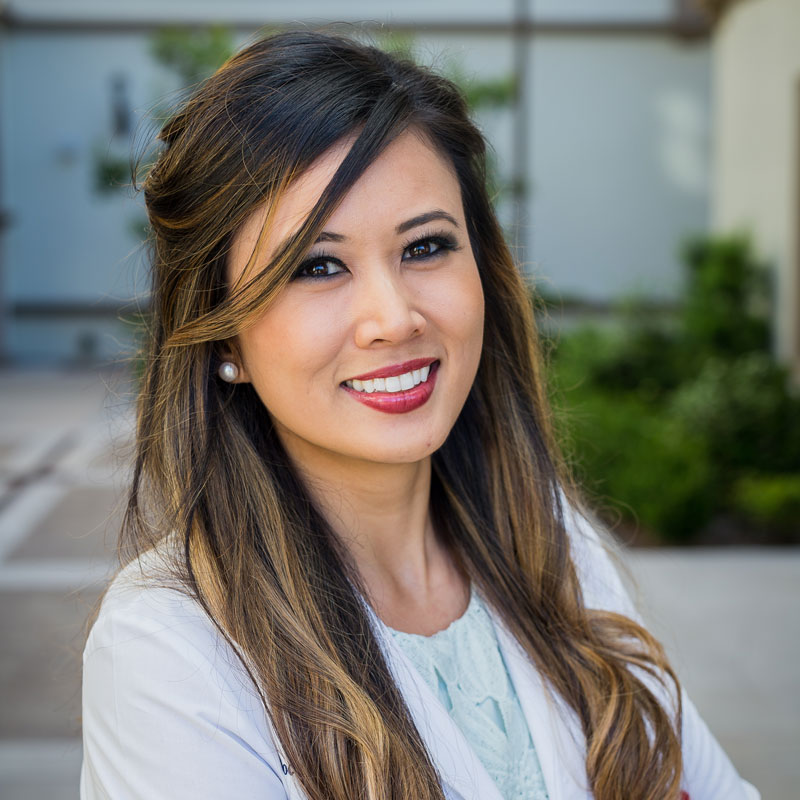
Alumni Spotlight
"The education I received not only provided me with the clinical/theoretical foundation necessary to provide care to a diverse aging population with increased complex needs; but also skills in evidence-based research, health policy, health care informatics, and quality improvement. As a doctorally-prepared nurse practitioner, these skills are essential in order to meet the needs of an evolving health care environment and have become the foundation of my practice. I am grateful for the academic challenge, support, and mentorship I received from expert faculty who continue to influence my clinical and professional advancement."
–Marissa Munsayac, DNP, FNP-C
The Dickinson Nursing Simulation Center
Realistic scenarios play out in the Dickinson Family Foundation’s Lizbeth Dickinson Smoyer Nursing Simulation Center (DNSC). The DNSC is the keystone of the school’s clinical teaching facilities and a national model for nursing education. Located on the first floor of the Beyster Institute for Nursing Research, the DNSC houses an eight-bed clinical skills classroom equipped with highfidelity human patient simulators, six primary care exam rooms, three acute care hospital rooms with observation rooms, a medication station, three debriefing rooms, a green room for patient-actors, control rooms, equipment and store rooms, along with a faculty/staff office suite.
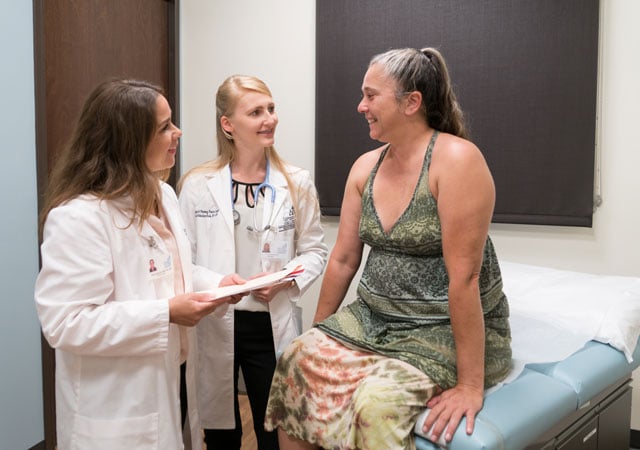
About the Hahn School of Nursing and Health Science
The Hahn School of Nursing and Health Science was founded more than 40 years ago on the beautiful campus of the University of San Diego. Our school consistently ranks among the best graduate nursing schools locally and nationally, but that’s not the only reason future students walk through our doors to pursue one of our graduate degrees.
The personal connections between faculty and students fuel our collective success and impact. Compassion isn’t just woven into our coursework — it’s embodied in our commitment to you. As scholars and clinicians, we value your talents and experiences. We’re here to mentor, nurture, and uplift you as you become all you’re meant to be.
Explore Our Programs
Learn about your program of interest by visiting the programs page on our website. Review information on admissions, financial aid, and much more.





